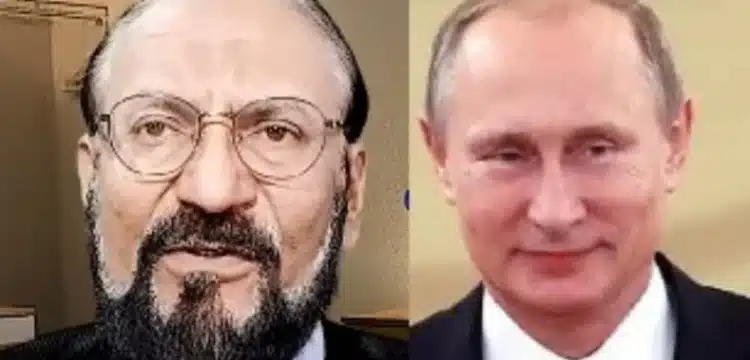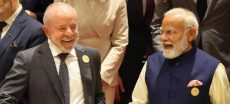The Waning American Dominance: Dawn of a New Global Era
At a thought-provoking seminar in Luxembourg, Muhammad Faisal, a distinguished mediator in international disputes, delivered a poignant critique of the current global political landscape. He asserted that the United States has surrendered its once-uncontested position as the global superpower, a role it has held since the Cold War’s end. Faisal declared, “The post-World War II world order is unraveling. The global community, long accustomed to American supremacy, must now recognize a profound shift.”
Faisal attributed this shift to America’s waning influence and evolving geopolitical dynamics. The world has moved from a unipolar era dominated by American leadership to a multipolar reality where emerging powers like China and a resurgent Russia are making their presence felt. This transition, he emphasized, necessitates a reevaluation of global alliances and security strategies.
Europe’s Security Conundrum: The Urgent Need for Self-Reliance
Faisal underscored the pressing need for Europe to reexamine its security dependencies. “European nations have relied heavily on the security umbrella provided by the United States,” he remarked, “but the situation has drastically changed.” He criticized Europe’s dependence on American military and political support, arguing that this leaves the continent vulnerable to the unpredictability of American domestic politics. “We cannot afford to place our security in the hands of American elections every four years,” Faisal warned. “The United States prioritizes its own interests, and we, through NATO, end up protecting those interests.”
His call for a self-sufficient European defense policy reflects growing concerns about the continent’s ability to manage its security independently of the United States. Faisal urged European leaders to focus on developing robust defense and security policies that prioritize the safety and stability of their own nations, free from transatlantic dependencies. This viewpoint is gaining momentum amidst increasing uncertainty in U.S. foreign policy and its implications for global security.
G7: From Economic Titan to Military Coalition?
Faisal leveled sharp criticism at the recent decisions of the G7 summit, accusing the group of morphing from an economic powerhouse into a potential military alliance. “The G7 is on the verge of transforming into a war alliance,” he lamented. Faisal argued that the strategies and policies endorsed by the G7 are compelling Russian President Vladimir Putin to take unilateral defensive actions, thereby escalating tensions and risking widespread destruction across Europe.
His critique highlights the dangers of blending economic collaboration with military strategy. Originally established as a forum for addressing global economic issues, the G7 now faces accusations of overreaching by engaging in security and defense matters. Faisal’s warning underscores the need for a clear separation between economic policies and military alliances, advocating for diplomatic solutions over confrontational approaches.
China’s Peace Initiative: A Lost Chance in the Russia-Ukraine Crisis
Turning to the ongoing Russia-Ukraine conflict, Faisal highlighted a significant missed opportunity for peace. He noted that China’s proposed formula for resolving the conflict was a viable solution, which was unfortunately dismissed by Ukrainian President Volodymyr Zelensky under American influence. “China’s formula for resolving the Russia-Ukraine war was highly effective,” Faisal asserted, “but Zelensky rejected it under American pressure.”
Faisal’s remarks bring to light the complex interplay of international influences shaping the conflict. He suggested that the European Union should reconsider its stance, prioritizing the security and well-being of its citizens over aligning with American geopolitical strategies. By adopting a more autonomous and pragmatic approach, Europe could potentially pave the way for a peaceful resolution to the conflict.
Conclusion: A Call for European Autonomy
In his concluding remarks, Faisal reiterated the necessity for European nations to take control of their security and defense policies. “Given the current situation,” he said, “the European Union must prioritize the security of its people and distance itself from American conflicts.” He called for a thorough reevaluation of Europe’s strategic alliances, urging leaders to chart a course that ensures stability and peace through self-reliance and diplomatic engagement.
Faisal’s insights offer a stark reflection on the present state of global politics and the urgent need for Europe to adapt to a rapidly changing world order. His call for a more independent and proactive European security strategy resonates with growing sentiments across the continent, marking a pivotal moment in international relations.











